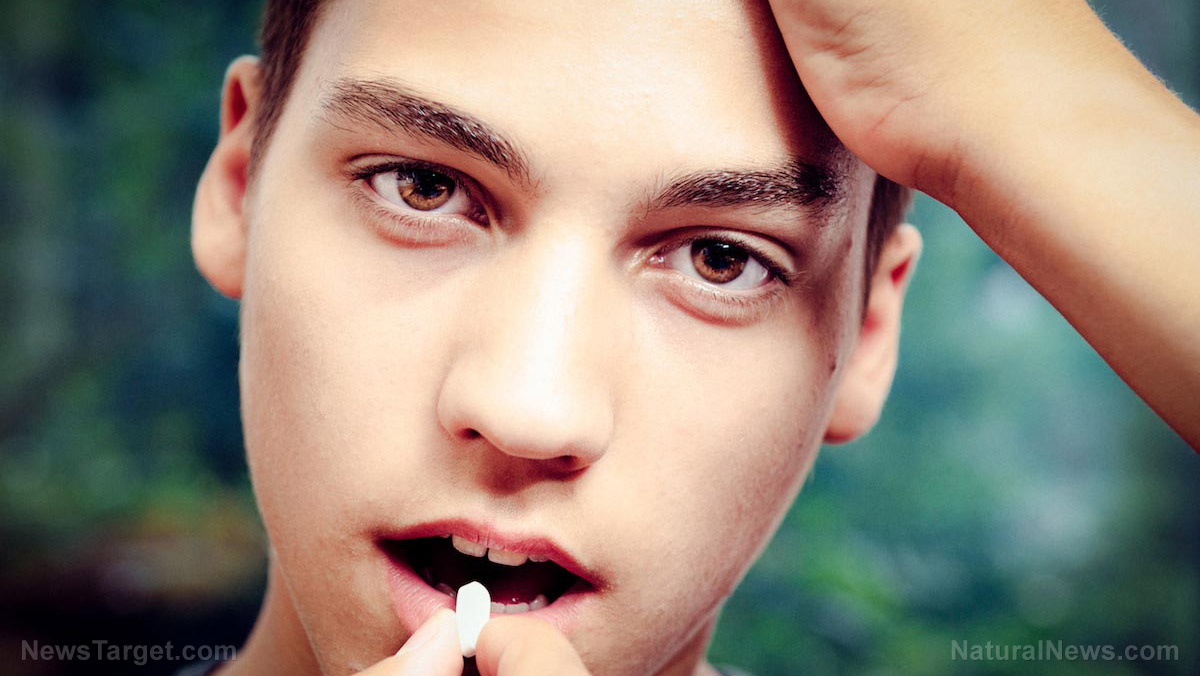Non-invasive ADHD treatment for adults found to be as effective as other therapies: Cognitive-behavior therapy is particularly efficient
12/03/2017 / By Russel Davis

A study published in the journal The Lancet Psychiatry has revealed that cognitive-behavioral therapy (CBT) group training is just as effective as neurofeedback training in treating attention-deficit hyperactivity disorder (ADHD). However, the experts have observed that while both methods worked to decrease disease symptoms, CBT appears to be a more efficient treatment option.
ADHD is classified as a mental disorder that starts in childhood or young adulthood. Experts have noted that up to sixty percent of ADHD cases persist in adulthood, which in turn makes both professional and private lives challenging. Symptoms of ADHD include impulsiveness, low stress tolerance, inner restlessness, and compulsion. Patients diagnosed with ADHD also have difficulties in planning, organizing, and concentrating on a single task for longer periods. The condition is commonly treated with certain medications, but non-pharmacological interventions have also shown significant efficacy.
A team of psychology experts at the Eberhard Karls University of Tübingen in Germany enrolled 118 ADHD patients as part of the 15-week study. The participants received either 30 neurofeedback sessions or 15 sham neurofeedback sessions followed by 15 neurofeedback sessions. After more than 12 weeks, another patient group has been given a total of 12 CBT group therapy sessions.
The research team found that both the CBT and neurofeedback training led to significant improvements in ADHD status. However, the experts observed that neurofeedback training did not show superior results compared with sham neurofeedback sessions. Neurofeedback intervention did not appear to have a specific effect on brain waves, the researchers add. (Related: No meds required: 3 ways schools can help ADHD kids without resorting to risky psychiatric drugs.)
100% organic essential oil sets now available for your home and personal care, including Rosemary, Oregano, Eucalyptus, Tea Tree, Clary Sage and more, all 100% organic and laboratory tested for safety. A multitude of uses, from stress reduction to topical first aid. See the complete listing here, and help support this news site.
“The method was considerably less involved as well. Among other things, it requires fewer sessions. And instead of training each individual, group work is possible. Plus there are no additional costs such as creating and maintaining technical equipment. The results of our study show that CBT approaches are very effective and efficient in treating ADHD symptoms in adults. Before other methods for the therapy can be recommended, these must first demonstrate they are superior to standard, CBT methods,” project leader Michael Schönenberg reports in a university press release.
ADHD treatment remains an unmet need in the U.S.
The recent findings may show potential in ADHD treatment, especially now that recent research shows that nearly two-thirds of adult Americans with self-reported ADHD do not receive drug intervention despite being highly affected by their symptoms. Scientists at the Shire, LLC in Lexington, Massachusetts have pooled data from the National Health and Wellness Survey (NHWS) to carry out the study.
The findings reveal that 62.6 percent of patients with self-reported ADHD do not take medications. Likewise, these patients are more likely than their healthier counterparts to report co-morbid conditions including anxiety, depression, and panic disorders as well as insomnia, post-traumatic stress disorder (PTSD), and heartburn. The results also show that patients with self-reported ADHD are more likely to test positive for bipolar disorder and major depressive disorder compared with their otherwise healthy counterparts.
“Results indicate there is an unmet need for better treatment to manage symptom burden among US adults with ADHD. These findings underscore the importance of screening for symptoms with validated instruments, like the ASRS-v1.1, to aid proper diagnosis and optimal management of ADHD in adults,” the researchers say.
“What we found was that non-psych specialists were not as confident and don’t always [have] the proper resources to screen, diagnose, and optimally treat adult ADHD patients. I think we have a lot of work still ahead of us to make sure we’re recognizing adult ADHD, and that we’re properly leveraging the resources among our top [key opinion leaders] as well as other practitioners,” researcher Alexandra Khachatryan, MPH tells Psychiatry Advisor online.
The findings have been presented at the 2017 Psych Congress in New Orleans, Louisiana.
Sources include:
Tagged Under: adhd, Anxiety, bipolar disorder, cognitive therapy, depression, mental health, psychiatry, PTSD




















